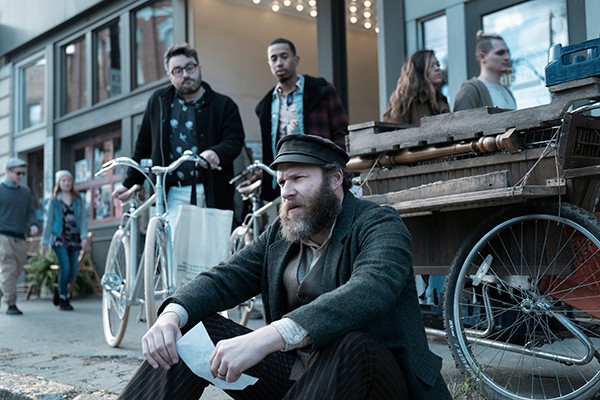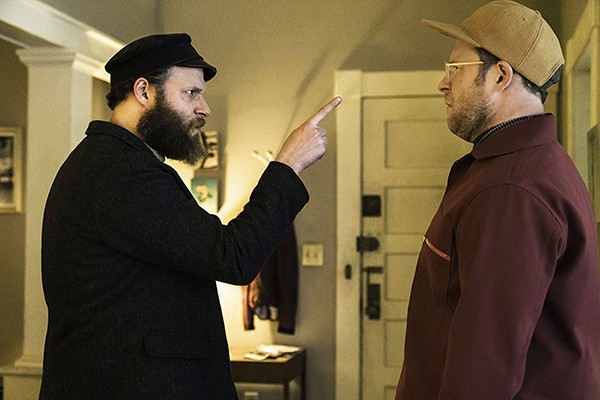In the Before Time, I had a gig as a social media consultant. It was my job to come up with content for clients to post on their Facebook, Twitter, LinkedIn, and Google+ accounts. In the long ago of Obama’s second term, it was a pretty good job. I worked from home, made my own hours, and there was strong demand for my services. But the work was also very tedious, and dealing with companies who didn’t understand their social media brand (or even, in some cases, what social media was) could be very annoying.
As I sweat bullets trying to come up with something clever to say about blast-resistant tents that would catch the eye of influencers in the fracking industry, I was frequently struck by the absurdity of the situation. How would I explain to the me who graduated from high school that, in the 21st century, I wrote for Twitter for a living? I’m not talking about having to explain to my younger self that I was not, in fact, a famous author living as a tax exile in Tangier. There was no context for my younger self to even understand the job. First, I would have to explain what Twitter was, and I’m not sure I could do that now. I think my younger self’s reaction would have been something like: “You have this world-spanning information network, supercomputers that fit in your pocket, and literal Dick Tracy video wrist communicators, but you use them to take pictures of yourself in the hopes that strangers will pretend to like you.” Because that’s pretty much my reaction today.

Seth Rogen (as Herschel Greenbaum) rises from a pickle vat to star alongside himself in HBO’s An American Pickle.
Young Me would be disappointed I’m not dictating my next bestseller to my exotically attractive secretary as the call to prayer floats in on the Mediterranean breeze. I would explain how that was never a realistic goal, but Young Me would just roll his eyes.
An American Pickle is about the feeling that the past would be disappointed in the present. Seth Rogen stars as Herschel Greenbaum, a ditch digger in a dismal Eastern European town in 1919. His muck-filled days gain hope when he meets Sarah (Sarah Snook), a beautiful peasant girl who has all of her teeth, “top and bottom!”
The couple bond over their shared history of trauma — both their families were murdered by Cossacks — and get married. Pursued by, you guessed it, Cossacks, they flee to America, where, like many Eastern European Jews, they settle in Brooklyn. Herschel gets a job in a pickle factory, and the young couple pursue the American Dream. But tragedy strikes when Herschel falls into a pickle vat, leaving Sarah to raise their son on her own.

Cut to a century later, when a couple of kids playing with a drone discover Herschel’s vat. When they open the lid, they find that Herschel has been preserved with the pickles, and he rises like Rip Van Winkle to face the 21st century.
His only living relative, it turns out, is Ben Greenbaum, his great-grandson, who is also played by Seth Rogen. Ben is a software designer working on an app called Boop Bop, hoping to sell his one-man startup to a VC firm run by his old college friend Liam (Jorma Taccone). His modest, IKEA-accented Brooklyn apartment looks luxurious to Herschel. But how is he to explain how precarious his lifestyle is, given his startup is having major trouble getting off the ground? Explaining Twitter is even harder.
The best thing about so much money flowing into the film ecosystem from streaming has been the return of the mid-budget picture. Without $100 million on the line, and with the demands for streaming services being different than the theatrical box office, you can take more chances. Rogen and his partner Evan Goldberg have been producing mid-budget comedies for years. This one is directed by their colleague Brandon Trost, the cinematographer on pictures like This Is the End and The Interview, as well as the immortal comedy masterpiece MacGruber. The first-time helmer acquits himself well here, thanks to a tight edit and some shots that are a little too artsy for a goofy comedy.
Rogen does a fantastic job as co-leads, clearly relishing Herschel’s over-the-top Yiddish accent and dialing up Ben’s schlub factor. The weak link is the script, written by Simon Rich. It takes the obvious fish-out-of-water jokes for a spin but can’t transcend the premise or recover after veering into Being There territory. What ultimately redeems An American Pickle is Rogen’s top-notch performances, and the air of good-natured sentimentality that suffuses the production. Or maybe I’m just a sucker for Borscht Belt Jewish comedy, which is something your grandfather would have definitely understood.
An American Pickle streams on HBO Max.